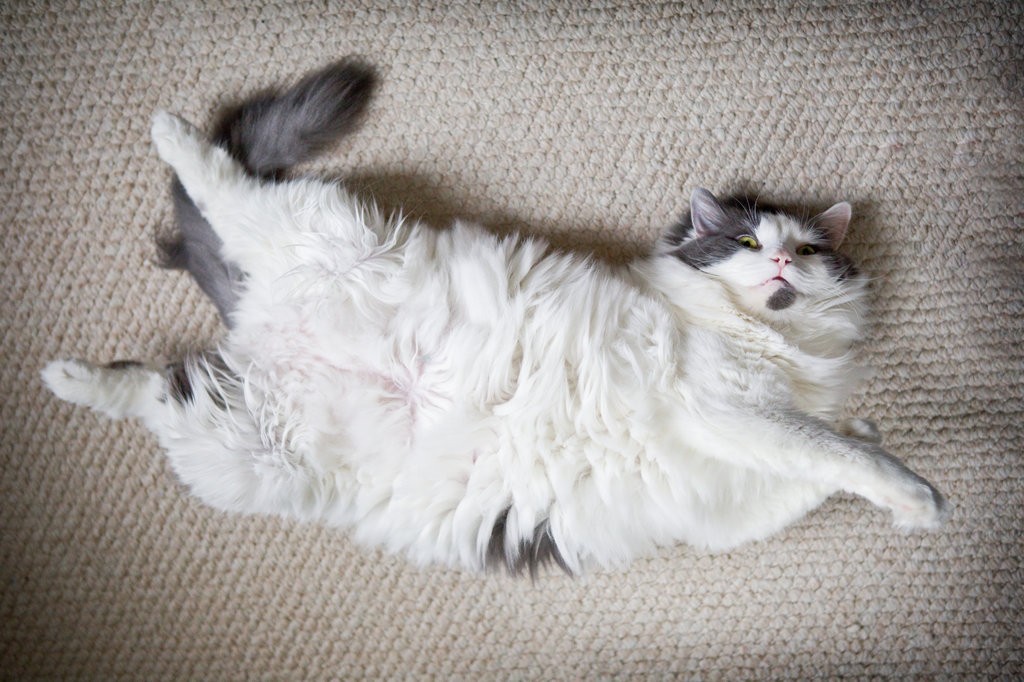November 17, 2020

There are a lot of human foods that are safe to give to your dog, but keep in mind that treats should only make up about 10% of a dog’s diet. The other 90% should be from a complete and balanced dog food.
Some popular holiday foods that are safe for dogs include:
- Turkey and chicken (cooked and unseasoned)
- Green beans
- Carrots
- White potatoes and sweet potatoes
- Cranberries and blueberries
- Pumpkin – but be careful not to give pumpkin pie mix due to the added sugar and spices
While all of the above foods are safe for your dog to eat, remember to only give in moderation. Introducing too many new foods in a short period of time can upset your dog’s stomach. It is always important to read ingredient labels for all foods prior to giving to your dog.
Human food that dogs should avoid are:
- Ham
- Onions
- Garlic
- Macadamia nuts
- Almonds
- Chocolate and other sweets – especially avoid the artificial sweetener xylitol, which is toxic to dogs
- Grapes and raisins
- Chicken/Turkey/Beef bones
Stay safe and enjoy the holidays!
Marc Siegel, DVM

June 28, 2019
Some dog parents are concerned about grain-free diets potentially causing heart issues in their dogs. There is growing evidence that grain-free dog foods are linked to a heart condition called Dilated Cardiomyopathy (DCM). Unfortunately, there is a lot we still don’t know. Here are the facts:
- DCM is a serious disease that causes the heart to enlarge and beat with less force, potentially causing heart failure.
- DCM has been found to be associated with dogs fed a grain-free diet, usually with peas and/or lentils. However, all grain-free diets put your dog at an increased risk.
- The cause remains a bit of a mystery. A deficiency in the amino acid taurine has been suspected, but there seems to be more to the disease than a simple nutritional deficiency.
- The disease is reversible if caught in time.
Signs of heart disease include: weakness, lethargy, shortness of breath, and coughing. If you notice any of these symptoms, take your pet to a veterinarian right away. Your vet will listen for a heart murmur and/or an abnormal heart rhythm and possibly perform additional testing.
I would also like to add my two-cents regarding grain-free diets. Grain allergies are very rare in dogs. Many clients ask me why dog foods contain grains when wolves don’t eat grains in the wild. My answer to this is always the same: dogs are not wolves. Dogs have been evolving with humans for tens of thousands of years and their stomachs have also been evolving to be able to digest our food. Grains are full of nutrients and are perfectly safe for dogs to eat.
Fortunately for our canine companions, veterinary researchers and the FDA are busy investigating this disease and more information should be available in the near future.
Marc Siegel, DVM
Isthmus Veterinary Care
www.isthmusvetcare.com

December 22, 2018
By some estimates, over 90% of indoor house cats are overweight! Here are some weight loss tips:
- Measure out the amount of food. If the back of the food bag says to feed ½ cup of food daily, make sure you are are using a measuring cup and not a one-liter Big Gulp from Seven Eleven!
- Weigh your cat every 2 weeks. The easiest way to weigh your cat at home is to weigh yourself, then weigh yourself while holding your cat. If your cat is still gaining weight while getting what is recommended on the bag of food, you should decrease the amount you are feeding by 10-20% until you start to see weight loss.
- If your cat starts to drive you crazy because you are not feeding him enough, you may need to pick a food with lower calories so you can feed him a bigger portion. Indoor or weight loss foods will have lower calories.
- If possible, feed your cat small, frequent meals. Wild cats eat by foraging for small prey animals. Their stomachs are designed to eat this way. If you can split up the recommended daily food intake into 3 or more small meals, this will help them feel fuller for longer.
- One of the most effective ways to help cats lose weight is to add wet food to their diet. It seems counter intuitive but cats feel full based on the weight of food in their stomachs, not necessarily the size. Because wet food is heavier, they feel fuller and eat less. Be sure to cut back on the dry food if you are adding in wet.
- Lastly, just like people, exercise is critical for weight loss in cats. Cat toys, like feathers on the end of a string, can tap into a cat’s predatory instincts and encourage them to run and jump when they would otherwise be lying around.
I hope these tips help your cat shed a few pounds in 2019. Happy New Year!
Marc Siegel, DVM
Isthmus Veterinary Care
www.isthmusvetcare.com

November 14, 2018
One of the best parts about the holiday season is all the delicious food we get to eat! Unfortunately for our pets, many of the sweet, salty, decadent treats we love can be dangerous for pets. The best way to keep your pet safe during dinner time is to avoid giving them table scraps altogether, but I know this can be difficult for some people. I would suggest giving your pet cut up vegetables like carrots and string beans instead of turkey and stuffing. They likely won’t know the difference – a treat is a treat.
Here are some holiday foods you absolutely want to avoid:
- Fatty foods, like turkey skin and cheese, can cause diarrhea and vomiting, or a more serious condition called pancreatitis.
- Some healthier foods, such as onions, garlic, and raisins/grapes should also be avoided. Grapes and raisons are especially dangerous, as even a small amount can cause kidney damage in some hyper-sensitive dogs.
- Bread dough can cause problems for pets, including painful gas and potentially dangerous bloating.
- Artificial sweeteners (e.g. xylitol) commonly used in gum and sugar-free baked goods can be deadly if consumed by dogs.
- Chocolate can be harmful for pets, even though many dogs find it tempting. The darker the chocolate, the more poisonous it is to our pets.
- String, used to tie meat, is very dangerous as it can get stuck in your pet’s digestive tract.
If you believe your pet has eaten something it shouldn’t have, call a veterinarian or local veterinary emergency clinic immediately. Signs of pet distress include: sudden changes in behavior, pain, vomiting, or diarrhea. You may also want to call the ASPCA Poison Control Hotline: 888-426-4435.
With a little extra precaution, our four-legged friends can enjoy the holidays right along with us.

September 13, 2018
Litter Box Woes- Is your cat urinating outside of the literbox?
Inappropriate urination (IAU) is a very frustrating issue for cat owners and one of the most common reasons people put their cats up for adoption. While IAU can make you want to pull your hair out, there are several solutions to try before saying so long to your feline friend.
The first thing I would recommend is scheduling a check-up with your veterinarian to rule out any potential health issues. Cats suffering from a urinary tract infection will often experience discomfort while trying to urinate and may start to associate the litter box with pain. Felines could also be suffering from diabetes, kidney, or thyroid disease, all of which would make him want to drink more and therefore have to urinate more frequently.
If your cat is otherwise healthy, they may feel unsafe using the litter box. Litter boxes should be placed in quiet, open, warm areas of the home. Avoid placing the box at the end of a narrow hall where a cat’s path to his bathroom could be blocked. Also make sure you have one more litter box than there are cats. For example, if you have two cats, you should have at least three litter boxes in different areas of the home.
Stress or anxiety could also be contributing to IAU. Have you recently moved, gotten new pets, or had a baby? If so, your kitty might need a little time to adjust to their new environment. You can talk with your vet about calming supplements and anti-depressant medications to help him get through the transition.
July 17, 2018

Dogs overheat much quicker than humans because they can’t sweat. Instead, they expel heat through the pads of their paws and by panting. If dogs are left in hot conditions for too long they can very quickly begin to suffer from heat stroke.
Signs of heat stroke:
- Increased body temperature
- Excessive panting
- Excessive saliva
- Lethargy/weakness
- Seizures
- Blue/purple gums
Preventing heat stroke:
Keep your dog indoors, especially during the hottest part of the day. If a dog must be left outside, they need access to plenty of shade and lots of cool fresh water. Avoid concrete and blacktops – if it is too hot for you to walk barefoot then it is too hot for your dog!
NEVER leave your dog unattended in a vehicle. On an 85-degree day it takes only 10 minutes for the interior of your parked care to climb to 104 degrees!
What to do if you suspect heat stroke:
If you suspect your dog has heat stroke, get them into the shade as quickly as possible and offer them fresh water. Apply cool wet towels on their head, neck, and feet. Avoid using very cold water (like from a hose) as this can cause your dog to shiver, which may elevate their body temperature.
Mild cases of overheating can be handled at home, but if your dog is suffering from heat stroke, get them to the veterinarian as quickly as possible where intravenous fluids and oxygen will be used to help cool your dog down and stabilize their internal organs.
The summer months are a great time to enjoy the many adventures Wisconsin has to offer – just be sure to keep your pups cool, hydrated, and happy.
June 5, 2018

Anxiety caused by fireworks (and thunderstorms) is a very common problem among dog owners. Although it is difficult to completely cure most dogs of fireworks phobia, a lot can be done to lessen the issue and help relax your furry friends.
The first step is the most difficult one: training. The goal is to substitute the negative association your dog has created with fireworks with a positive one. What does your dog love? Treats? Attention? Tug-of-war? When the fireworks start, positively reinforce calm, relaxed behaviors by rewarding your dog with what it loves most.
Two additional tools you can use to fight fireworks phobia are exhaustion and distraction. If possible, the morning of the 4th, take your dog for a long walk or go to the dog park. Exercise will help your pet relax later in the day when the sky starts to light up. You can also try to distract your pet by giving them a new toy or treat when the festivities begin.
Lastly, if training, exhaustion and distraction are not enough, there are certain products, supplements and medications that can be helpful. Some dogs, like infants, feel comfort when wrapped tightly around their chest and upper body. You could try swaddling your dog in a snug-fitting jacket, shirt, or specialty wrap like the Thundershirt. You could also try certain supplements (e.g. Solliquin, Zylkene) and pheromones (e.g. Adaptil), which can encourage relaxation when given before and during the stressful event. Beyond that, there are medical options (i.e. sedatives and anti-anxiety medications) to help your pet get through the night.
Please contact us at Isthmus Veterinary if you have any questions for Dr. Siegel.
Phone: 608-230-5499. Email: info@isthmusvetcare.com.
We also can be found on Instagram and Facebook, feel free to check us out there.
I hope you and your pooch have a fun and fear-free 4th of July!
April 14, 2018
Wow! We had such a great time at our Grand Opening Party! We cannot thank Conscious Carnivore, Organic Valley, Salvatore’s Tomato Pies, Johnson Public House, Festival Foods and Chocolate Shoppe Ice Cream Co. enough for helping us raise over $500 for Madison Cat Project! With their adoption programs (both indoor and barn cats), Madison Cat Project is able to offer cats who need extra time for socialization or medical recovery an opportunity to find forever homes.
Isthmus Veterinary Care is proud to support local organizations like Madison Cat Project, and we plan to do similar fundraisers in the future to serve our community.
We also want to thank everyone who attended our Grand Opening and helped welcome us into the neighborhood. Our clients are the reason we are able to do what we love to do each day. We want you to know that your pet’s health and well-being is our top priority. We are thrilled to be able to provide the area with smart and sensible pet care. We look forward to being a reliable service for you for years to come!












March 17, 2018
Lily Toxicity in Cats
Many people bring plants into their homes during the springtime. This can be an exciting time for curious cats, but also potentially dangerous. Unlike most poisonous plants, which can cause mild gastrointestinal distress, lilies are potentially deadly. Every part of the plant should be considered toxic, including the pollen, stem, leaf, flower, and water drained through the plant.

Lilies are unique in that a very small amount, if ingested, can cause kidney failure. The first signs you may see are decreased appetite, lethargy, and vomiting. If you observe your cat eating or drinking from a pot containing lilies, bring it to a veterinarian immediately. Most cats will require hospitalization with intravenous fluids to help flush the toxins out of their system. The most important treatment for lily toxicity is aggressive therapy right away!
Chocolate Toxicity in Dogs
Every spring, the Easter Bunny brings us baskets full of chocolate. Unfortunately for our four-legged family members, chocolate can pose a serious threat to their health. The poisonous property is called theobromine and is found in varying concentrations depending on the type of chocolate. Milk chocolate is less toxic than semisweet chocolate, which is less toxic than dark chocolate.
Signs of chocolate toxicity include:
- Increased drinking and urinating
- Vomiting
- Diarrhea
- Hyperactivity
- Tremors
- Seizures
- Increased heart rate
- Abnormal heart rhythm
- Death in severe cases
If you observe your dog eating chocolate, contact your veterinarian right away. Be sure to know the type of chocolate and the quantity ingested. If it happened recently, your veterinarian may want to induce vomiting. If very little chocolate was ingested, no therapy may be needed. In severe cases, your dog may need intensive therapy with intravenous fluids and heart monitoring. It can take up to four days for the effects of chocolate to work its way out of a dog’s system. So guard those Easter treats!





















